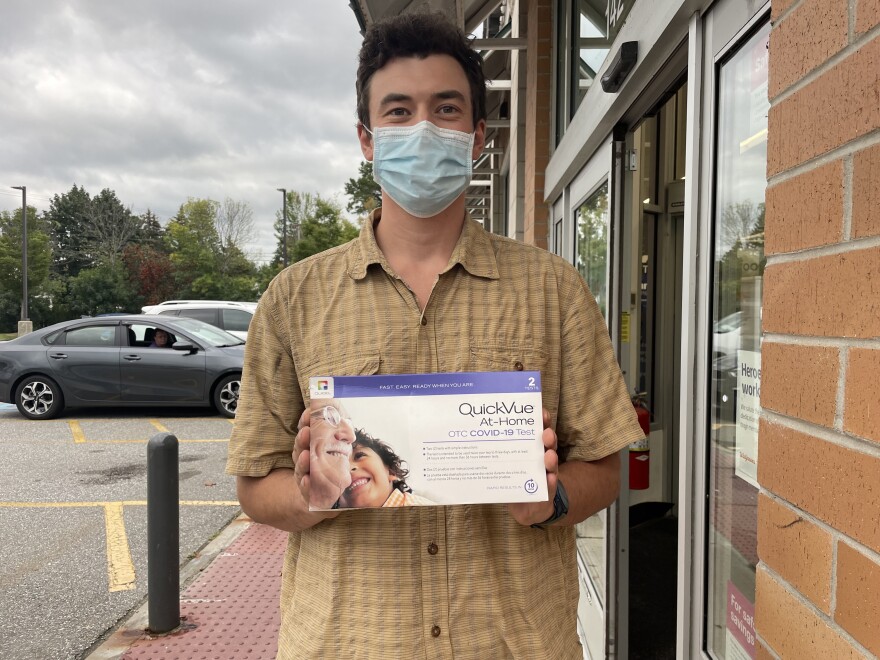If you recently bought an over-the-counter COVID-19 test or ordered one through New Hampshire’s at-home testing program last month, you may find the instructions for how to administer the test are large, clear and illustrated.
But what to do if you test positive may read more like an optional afterthought.
“Please share your results with a health provider" reads the graphic inside BinaxNOW’s at-home testing kit, which is sold in locations across New Hampshire.
That framing puts some New Hampshire health care providers on edge as more people start to test at home. An increase in home testing puts the onus on the individual to record and share a positive test result, which may not always happen.
Despite the rise in home testing and increasing rates of COVID-19 cases, Valerie Hart, a nurse and Chief Operating Officer with Coos County Family Health says they’re not getting many calls from patients about positive at home-test results.
And she’s not just concerned about the state’s ability to track positive cases getting less accurate.
“I don't think most patients realize that if they get a positive test, they should call their primary care provider not only just to report their results, but because we do follow up calls on our COVID positive patients to make sure that they're improving,” Hart said.
For those who may not have a primary care provider Hart says they can try calling the Federally Qualified Health Center in their region.
When patients get tested through Coos County Family Health, follow up with COVID patients happens automatically. It can include recommendations for monoclonal antibody treatment if they are at risk for a severe case of the virus.
Because that treatment is most effective when given in the early days of infection, patients could miss the optimal window by not calling at all or waiting to get in touch until symptoms are much more serious.
While increased COVID-19 testing accessibility, like more home-tests, is a key part of helping slow the spread of COVID-19 in New Hampshire, Dr. Sharon Vuppula, a pediatric infectious disease specialist in Nashua, agrees communicating positive results shouldn’t be forgotten.
It’s hard to know what the report rate to providers is for positive at-home tests actually is, because if they’re not reported, they’re not tracked, says Dr. Vuppula.
Dr. David Fagan, the medical director at Mid-State Health Center in Plymouth, says communicating with COVID-positive patients helps keep them out of the hospital, especially right now, as hospitals across the state are overwhelmed. Mid-State, he says, will give COVID-19 positive patients a pulse oximeter so people can keep track of their own oxygen levels.
Fagan says Mid-State is getting calls from people testing positive at home, but does worry about those who might not be calling. He says even a negative at-home rapid test may be worth checking with a doctor about, because false negatives are common, and if symptoms are present, getting a second PCR test is often recommended.
Still, other COVID-19 testing in the state does not naturally include as much follow-up with patients as health centers like Mid-State and Coos County Family Health provide.
A spokesperson for CVS says patients who test positive through their drive through or lab testing receive written information about appropriate next steps, with information about symptoms, how to quarantine if their result is positive, when to seek out additional medical care and recommending they connect with their primary care provider if they have questions.








